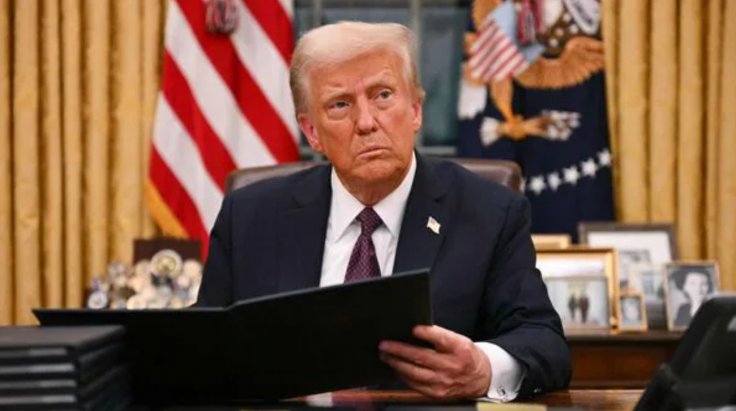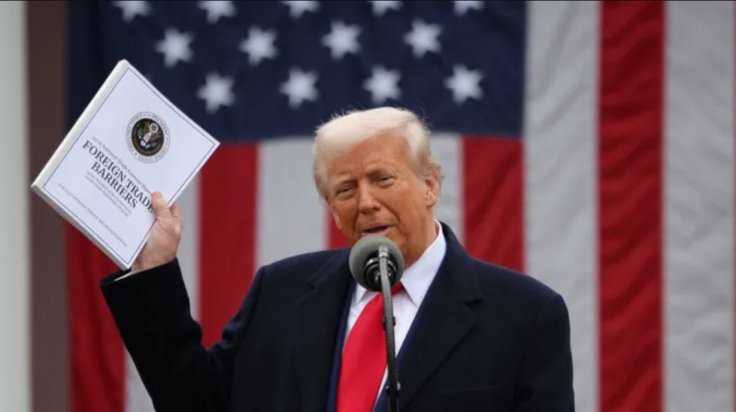President Donald Trump announced on Wednesday that he will delay tariffs for 90 days for countries that have not yet imposed retaliatory tariffs on the U.S., sending wall Street on a rally. However, he also at the same time raised tariffs on Chinese goods to 125%, accusing Beijing of showing "lack of respect for global markets."
Trump said he chose to pause the tariffs because over 75 countries have contacted the White House seeking to work out agreements addressing the trade concerns prompted by the newly introduced tariffs. Following the announcement stocks soared, with the S&P 500 up over 7%, Nasdaq up 8%, while the Dow rose more than 6%.
Trump Tariff Halt Sends Markets on a Rally

"Based on the fact that more than 75 Countries have called Representatives of the United States, including the Departments of Commerce, Treasury, and the [US Trade Representative], to negotiate a solution to the subjects being discussed relative to Trade, Trade Barriers, Tariffs, Currency Manipulation, and Non Monetary Tariffs, and that these Countries have not, at my strong suggestion, retaliated in any way, shape, or form against the United States, I have authorized a 90 day PAUSE, and a substantially lowered Reciprocal Tariff during this period, of 10%, also effective immediately," Trump wrote on Truth Social, sending Wall Street soaring.
"Based on the lack of respect that China has shown to the World's Markets, I am hereby raising the Tariff charged to China by the United States of America to 125%, effective immediately," Trump began his post.
"At some point, hopefully in the near future, China will realize that the days of ripping off the U.S.A., and other Countries, is no longer sustainable or acceptable."
Meanwhile, the yield on the benchmark 10-year Treasury (^TNX) continued its upward trend, nearing 4.41% after trimming some earlier gains.
No Stop US-China Trade War

On Wednesday, China hit back after the Trump administration followed through with its threat to impose steep 104% tariffs on Chinese exports to the U.S. Although Beijing had initially delayed its response—sparking hopes in the market that it might exercise restraint—it announced that retaliatory tariffs of 84% would take effect Thursday, according to reports.
This development reflects another escalation in the ongoing trade war between the world's two largest economies, which has been unsettling financial markets amid fears of broader economic consequences.
On Tuesday, China vowed it would "fight to the end," a position the White House labeled as "a mistake."
Trump's rollout of the so-called "reciprocal" tariffs last week caught markets off guard, hitting countries like Vietnam, Japan, and India with substantial tariff hikes.
The fallout continued to rattle Wall Street on Tuesday, with another volatile trading session pushing the S&P 500 even closer to entering bear market territory.









